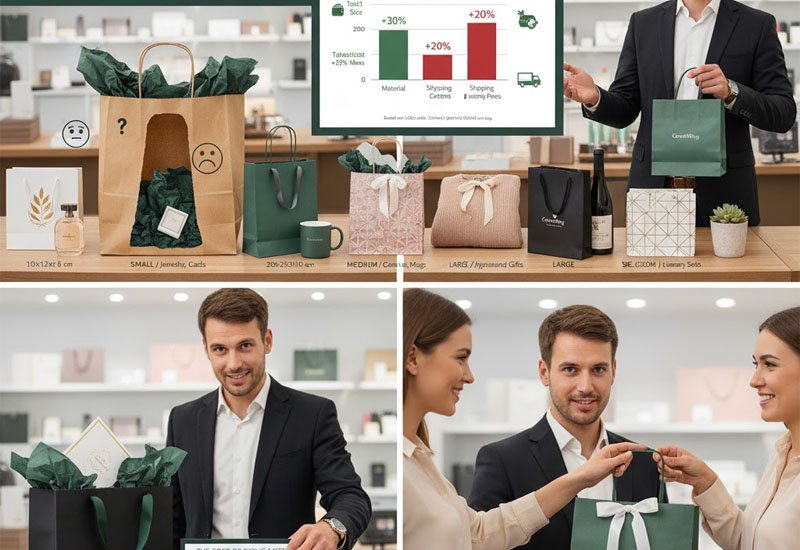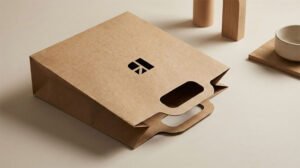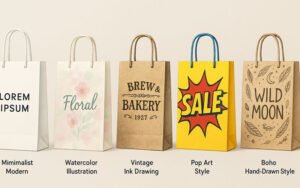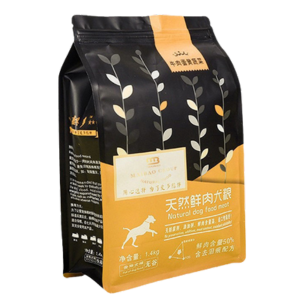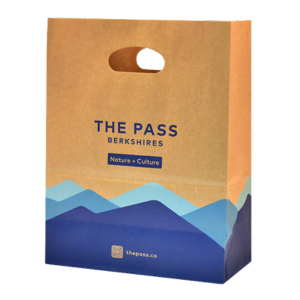Ever received a tiny item in a bag big enough to fit a microwave? Or worse—a stuffed, bulging gift bag that looks like it’s about to burst? Packaging mistakes don’t just look bad—they damage your brand. And that’s especially true in gift packaging, where the presentation is half the experience.
Choosing the right size for gift packaging is about more than just dimensions. It’s about creating a premium unboxing moment, minimizing waste, optimizing shipping, and protecting your product. It’s a strategic balance between aesthetics and functionality.
Let’s dig in—because sizing isn’t just numbers. It’s storytelling.
Why Gift Packaging Size Matters More Than You Think
Let me break it to you gently: size mistakes are expensive.
Too big? You waste money on material and shipping, and your product looks lost.
Too small? You risk damage, crumpled tissue paper, and a terrible first impression.
And don’t forget—today’s customer notices. They’re judging your sustainability, efficiency, and even your attention to detail—all from that one paper bag.
The Golden Rule: Form Must Fit Function
Here’s my mantra: the packaging should hug the product, not strangle or swallow it.
At GreenWing, we recommend that your bag or box size should be about 10–15% larger than the product. That allows:
- Room for tissue, inserts, or padding
- Easier handling and sealing
- A sleek silhouette that doesn’t look stuffed
And yes—we always mock it up before mass production. Because a millimeter on paper = a mile in real life.
Need standard gift bag size charts? Download template sizing guide
Common Size Categories for Gift Bags
Let’s talk real-world examples. Most gift bags fall into these standard size groups:
| Bag Size | Common Uses |
|---|---|
| Small (10x12x6 cm) | Jewelry, cards, perfume vials |
| Medium (20x25x10 cm) | Candles, mugs, accessories |
| Large (30x35x12 cm) | Apparel, boxed gifts, home items |
| XL / Custom | Wine bottles, luxury gift sets |
But remember: your product comes first, not the table.
Custom sizing is our specialty at GreenWing. You tell us the item, we engineer the perfect fit.
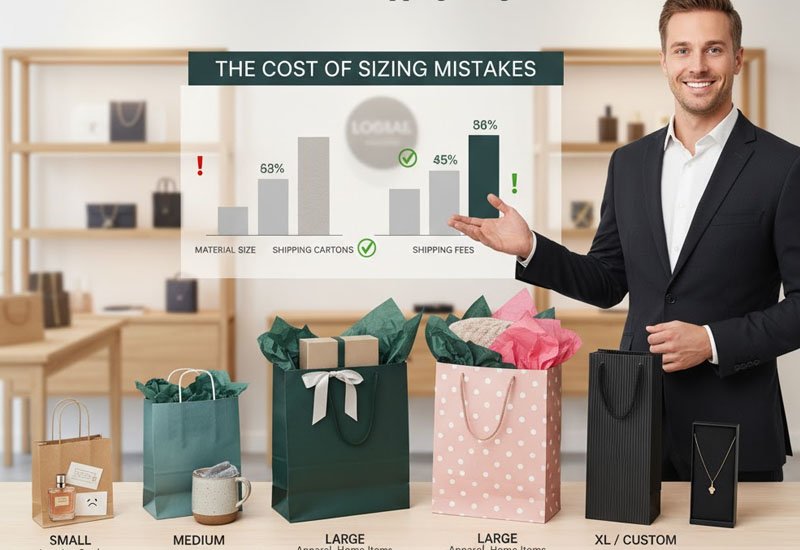
Consider These 5 Things When Choosing Your Gift Bag Size
1. Product Dimensions
This one’s obvious—but still ignored too often. Measure your product’s height, width, and depth, then add space for padding.
2. Material Type
Are you using kraft paper, coated paper, or rigid board? Each affects the internal volume. Coated bags often require a bit more breathing room due to thickness.
3. Weight of the Product
Heavy products (like candles or ceramics) need reinforced bottoms and strong handles. Too small = pressure points. Too big = poor weight distribution.
4. Extra Add-Ons
Will there be:
- Tissue paper?
- Foam inserts?
- Ribbons or thank-you cards?
Add their volume into your sizing math.
5. Customer Unboxing Experience
Ask yourself: will the customer open this in-store, at a party, or on TikTok?
Make sure the bag holds its shape, opens neatly, and feels premium.
Need packaging material thickness data? Check specs here
Customization Considerations: Size + Style = Impact
At GreenWing, we don’t just make bags—we make experiences.
For instance:
- A small square-bottom bag with matte lamination screams understated luxury
- A tall, narrow bag with foil stamping feels elegant and boutique
- A wide, soft-handled bag says approachable and fun
The size sets the stage. The finish tells the story.
We guide our clients through:
- Optimal size based on product and brand
- Material recommendations
- Handle and closure choices
- Sample review before bulk production
We’re not guessing—we’re engineering.
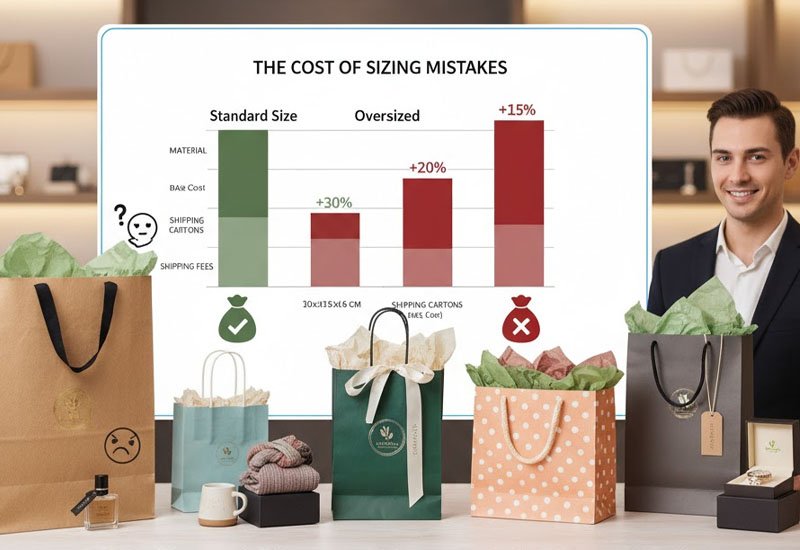
Sustainability: Big Bags = Bigger Waste
Let’s talk green for a second.
Oversized bags don’t just cost more—they generate:
- More paper waste
- More shipping emissions
- More customer guilt
Today’s shoppers notice when you “over-package.”
That’s why we offer minimalist fit-to-product designs. Just enough space. Just the right silhouette. And if you want compostable or FSC® certified materials? We’ve got them on standby.
Eco-packaging design tips: Read more here
Cost Implications of Sizing Mistakes
This one hurts your wallet and your brand.
Let’s say your product is 15x10x5 cm. You order 1,000 gift bags sized 25x20x10 cm. Congrats—you just paid:
- 30% more in material
- 20% more in shipping cartons
- More in shipping fees due to dimensional weight
And you risk the customer thinking: “Did they just throw this in the first bag they found?”
Right-sizing is smart business. And with our production output of 5 million bags a day, we know how to scale that intelligence.
Real Case: What Happened When a Client Oversized Their Bags
A Canadian boutique client of ours once ordered bags 20% bigger than needed—just to “play it safe.”
What happened?
- Products shifted around inside
- Bags looked half-empty
- They spent 15% more on storage and logistics
We redesigned the bags to fit just right, and their feedback?
“Our customers finally said ‘wow’ when we handed it over.”
Sometimes, smaller is better.
More Questions You Might Be Asking
How do I calculate the perfect size for irregular items?
We use 3D modeling and buffer-zone rules. Or, send us the product and we’ll do the rest.
Should I have multiple sizes for different gift tiers?
Yes. Tiered sizes (S, M, L) allow for bulk discounts while maintaining custom fit across your product range.
Can I see a sample before mass production?
Always. We offer free digital mockups and physical pre-production samples for approval.
Is it better to go slightly bigger or slightly smaller?
Always err on the side of slightly bigger, but not more than 10–15%. Too tight = disaster. Too loose = waste.
Conclusion
Choosing the right gift bag size isn’t a minor detail—it’s packaging strategy at its finest.
Your product deserves to arrive with elegance, security, and minimal waste. That’s what we do best at GreenWing.
So whether you’re launching a premium candle line or prepping for holiday gifting season—let us help you size it smart.
Your packaging isn’t just a bag.
It’s the first handshake with your customer.

